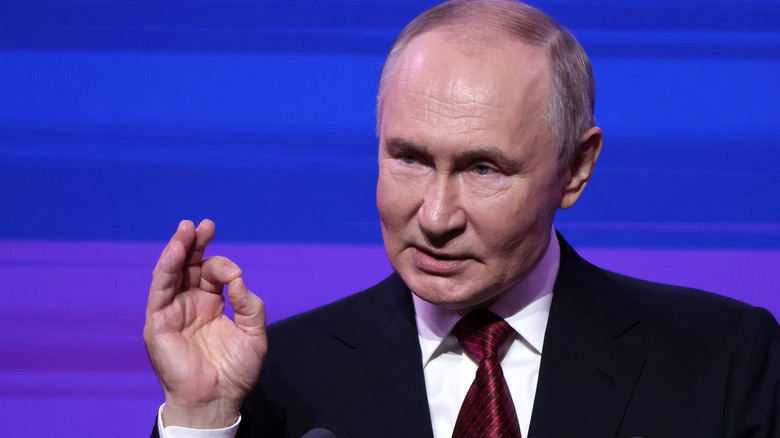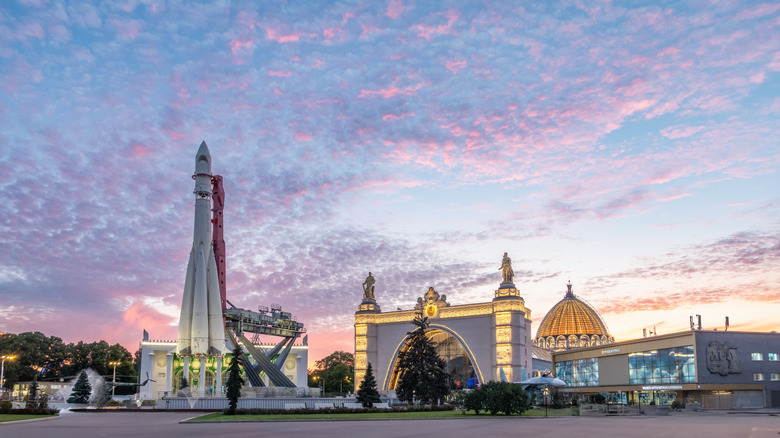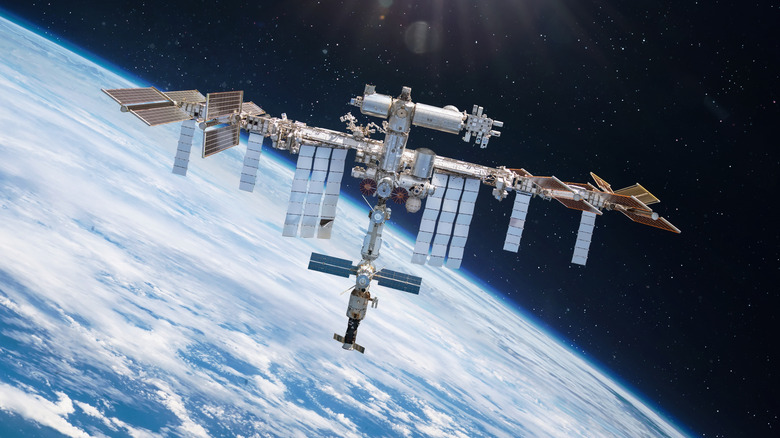Russia's Rocket Engine Development Is Stuck In A Predicament
Russia has historically been a trailblazer when it comes to space exploration. It was the first to put a human into space in 1961 with Yuri Gagarin. It led the way for the first spacewalk and had the first orbital space station, the Salyut 1. It has also had the only cosmonauts who have died in space. Georgi Dobrovolski, Vladislav Volkov, and Viktor Patsayev perished from an oxygen leak during the Soyuz 11 mission in 1971. Russia's history of space exploration, however, may be coming to a close.
Russian President Vladimir Putin visited the city of Samara in early September 2025 to tour the Kuznetsov manufacturing plant. The purpose of the visit was to emphasize the need for aerospace professionals to push progress forward and maintain Russia's status as a space power. In recent years, Russia has not been the power it once was. The war in Ukraine — which Lex Fridman discusses in a recent podcast — has played a significant role in this.
Russia's rocket engine development is falling behind expectations, which could weaken its role as a space power. At the same time, strained global relationships are putting pressure on its space program. Disruptions to vital supplies for scientific research may even force Russia to redefine its goals in space altogether.
Russia's space exploration problems
Roscosmos is Russia's space innovation corporation. While NASA is creating reactor fuel that could redefine human exploration on Mars, Roscosmos is currently struggling to simply develop more rocket engines. Multiple challenges have bombarded the organization, including international sanctions due to Russia's war on Ukraine, supply chain problems exacerbated by the war effort, and a financial crisis facing rocket developers.
Though the current war in Ukraine has made Russia's rocket problems worse, the issue started long before that. Since Russia's annexation of Crimea in 2014, Western sanctions have heavily damaged its space industry by cutting off access to technology and funding. To overcome this, Russia has tried to make its space program more self-reliant, but it still struggles with shortages of critical components like microchips. This has slowed satellite launches and widened the technological gap with other space powers, such as the United States.
Russia's invasion of Ukraine brought an end to decades of close space cooperation with the West. For years, Russia was a key partner in the International Space Station (ISS) and worked with Europe on the ExoMars mission while earning revenue by providing NASA with rocket engines and crew transport. Now, the rise of private companies like SpaceX, along with sanctions, has reduced Russia's role in the global space market. By 2021, rocket engine exports, such as the RD-180, which had tied the U.S. and Russia together, ended. Now, Russia's ties with other Western space programs continue to unravel.
Russia's future in space
While the International Space Station remains intact, some connections between Russia and participating countries, such as the United States, Japan, and France, could soon fall apart. Russia has been working on developing its own version of the ISS, called the ROSS, for the past decade. If established, Russia could potentially remove itself from the ISS altogether.
Despite Russia's historical advantage in space exploration, all that could be undone very quickly. With economic strain due to war efforts and Western sanctions, rocket engine development and other space exploration projects are struggling. Russia's view of increasing autonomy and potentially separating itself from the rest of the world would have a far-reaching impact on international space cooperation and joint discovery.
Despite these issues, Russia is pushing forward with innovations in rocket engines. Roscosmos still has future planned missions. Whether they can be completed on time with the desired resources will remain to be seen. This comes at a time when SpaceX is on the cutting edge of technology, the European Space Agency (ESA) is pushing forward exciting projects, and even India is looking to increase its space power. Perhaps Russia will get left behind, or perhaps it will enter a new age of isolationist space exploration.


